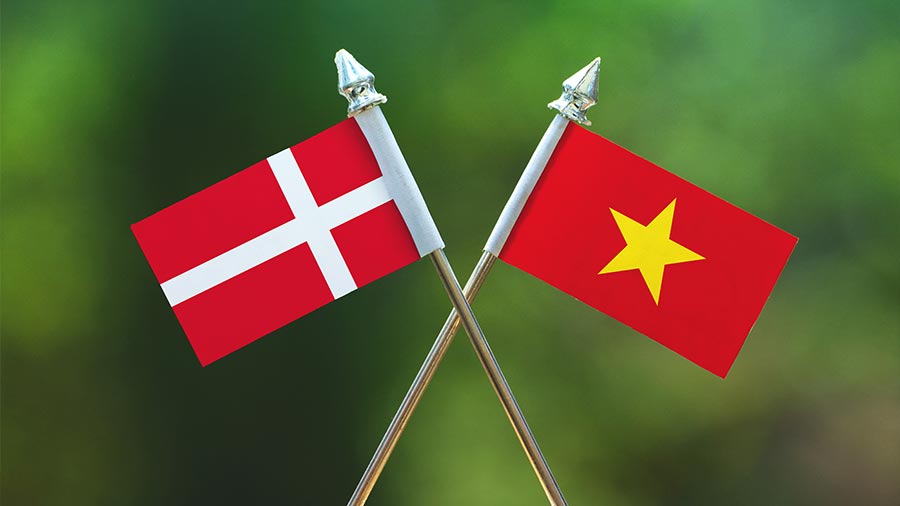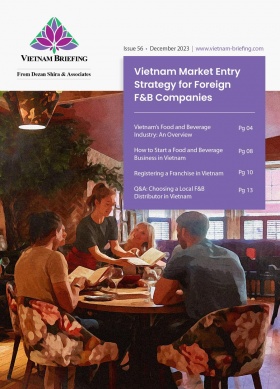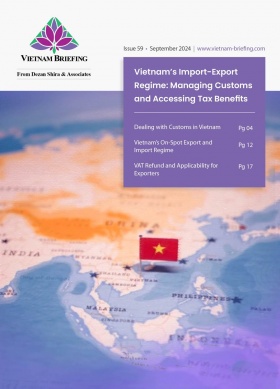Tax Obligations for Resident and Non-Resident Property Owners in Vietnam
In this article, Dezan Shira and Associates details the tax reporting obligations for foreigners who own rental properties in Vietnam, addressing common questions related to this topic. Foreign property owners in Vietnam, both resident and non-resident, are required to adhere to the same tax regulations as Vietnamese citizens.
The current Housing Law, No. 27/2023/QH15, dated November 27, 2023, took effect on August 1, 2024. This law replaced Housing Law No. 65/2014/QH13, which was enacted in 2015. It provides guidance on housing management in Vietnam and applies to both resident and non-resident property owners, specifically allowing foreign citizens and investors to purchase property in Vietnam.
As a foreigner who owns a rental property in Vietnam, it is important to understand your tax reporting and remittance obligations to avoid complications with the tax authorities.
Additionally, it is important to note that there are potential tax exemptions or reductions available for foreign owners of rental properties in Vietnam depending on their home country. Some tax jurisdictions even treat rental income from overseas as tax-free income.
Paying tax on rental income in Vietnam
As a foreigner owning rental property in Vietnam, you are subject to the same tax regulations as Vietnamese citizens. This means that if your annual rental income exceeds the tax-free threshold of VND 100 million (approximately US$4,000 per year or US$333 per month), you are required to register for and pay taxes on that income.
Example: Marcus, an Australian resident, earns a total rental income of VND 180 million (about US$7,119) from his property in Vietnam from July 1, 2022, to June 30, 2023, including taxes. This means his monthly rental fee is VND 15 million (about US$593), and his annual rental income will exceed VND 100 million (approximately US$4,000). Therefore, he is required to pay taxes in Vietnam for 2022 and 2023.
It is important to note that Marcus’ tax obligations would still apply even if he earned rental income in just one month, provided that the income exceeded US$333 for that month.
Meeting tax obligations in Vietnam
-
Obtain a tax code number: The first step is to obtain a tax ID specifically for property income. This tax code is separate from the one used for employment income in Vietnam. You can apply at the local tax office where the property is located, either in person or through an authorized representative with a notarized Power of Attorney.
-
Declare and pay taxes: After obtaining your tax code and registering for online tax filing, you can begin filing tax declarations and remittances. You may choose to declare and pay taxes on rental income either on an as-earned basis or annually. Those renting out serviced apartments via Airbnb or holiday homes often declare taxes as income is received due to its irregular nature.
Tax obligations: Rental income taxes include a 5 percent Value-Added Tax (VAT), a 5 percent Personal Income Tax (PIT), and a Business License Tax (BLT). For the BLT, the tax authority will review the submitted documents and determine the amount payable, so no separate action is required from the lessor.
Schedules of fees for Business Licence Taxes
|
Amount (VND) |
Annual rental income (VND) |
|
300,000 |
100 million to 300 million |
|
500,000 |
300 million to 500 million |
|
1,000,000 |
500 million and above |
PIT and VAT on rental income can be declared and paid using Form 01/TTS, which is submitted through the online tax portal. However, in case taxpayers face difficulties with remittances via the online portal, they can submit the tax form online and then visit a nearby bank branch for assistance with tax remittance.
Deadlines for tax return submission and payment:
- For one-time tax returns: Within 10 days of receiving payment.
- For annual tax returns: By January 31 of the following year.
The payment deadline is the same as the tax return submission deadline.
Example: Back to the case of Marcus, his tax obligations for each tax period are as below:
- 2022: He is exempted from a BLT for the initial year, and must pay a VAT of VND 4.5 million and a PIT of VND 4.5 million.
- 2023: He must pay a BLT of VND 300,000, a VAT of VND 4.5 million, and a PIT of VND 4.5 million.
He could choose to declare and pay tax:
- On a monthly/quarterly basis, if the payment term is each month/each quarter; or
- On an annual basis, including one return for 2022 and another one for 2023; or
- On a one-time basis for the period from July 1, 2022, to June 30, 2023, if he receives VND 180 million for the rental period when signing the rental contract.
Frequently asked questions about owning a property in Vietnam as a foreigner
Is it true that tax responsibilities for foreigners with respect to owning an investment property are the same as those of local owners? I hear that foreigners and non-residents are subject to a flat PIT rate of 20 percent in Vietnam.
The 20 percent flat PIT rate applies specifically to non-resident individuals earning income from employment or contracting work in Vietnam. However, non-residents earning rental income from investment properties are subject to the same tax obligations as local property owners. This clarification was provided in Official Letter No. 5262/TCT-DNNCN, issued by the General Department of Taxation of Vietnam on December 11, 2020.
I am not a resident for tax purposes in Vietnam and my home country has a Double Tax Treaty with Vietnam. Can I claim tax exemption on rental income from my investment property in Vietnam?
To assess this, it’s essential to specify your home country. Vietnam currently maintains around 80 DTAs with other countries. Rental income is commonly addressed in Article 6 of these DTAs, which typically states that income from immovable property is taxed in the country where the property is located. However, provisions to eliminate double taxation may apply, allowing taxes paid in Vietnam to be used as credits against tax payable in your home country.
It’s important to note that double taxation relief under DTAs generally applies only to the income tax portion and is limited to the actual tax paid in Vietnam.
Example: Marcus, an Australian resident, earns a total rental income of VND 180 million from his property in Vietnam from July 1, 2022, to June 30, 2023. His tax obligations for this period include a BLT of VND 300,000, a VAT of VND 9 million, and a PIT of VND 9 million. Under the Australia-Vietnam DTA, Marcus can offset the VND 9 million PIT paid in Vietnam against his tax payable on the apportioned foreign rental income in his 2023 individual tax return in Australia.
I don’t speak Vietnamese and don’t know how to do a tax registration and declaration in Vietnam. I’m not even in Vietnam at the moment. Who is empowered to help me with this?
You can appoint someone in Vietnam, such as your property manager, lessor, or a professional tax consultant, to handle tax compliance procedures on your behalf. To authorize this, you’ll need to complete a Power of Attorney. For the Power of Attorney to be legally effective in Vietnam, it must be:
- Signed by both you and the authorized representative and witnessed by a notary if you are physically in Vietnam; or
- Signed by you, legalized by the Vietnamese Consulate in your home country, then sent to Vietnam for certification by a local notary if you are residing outside of Vietnam.
I purchased a condo in Ho Chi Minh a few years ago but have not been issued a certificate of ownership yet. Why is this happening and what can be done to accelerate the process?
Obtaining certificates of ownership for foreign investors has been a contentious issue in Vietnam due to regulatory conflicts among government agencies. This challenge is particularly pronounced in Ho Chi Minh City, where a significant number of properties have been sold to foreigners.
The Real Estate Association has been actively urging the Ho Chi Minh City People’s Committee to issue ownership certificates to foreign property owners as mandated by the Housing Law, yet the issue remains unresolved. Currently, Hanoi is the only city in Vietnam issuing certificates of ownership to foreign homeowners, so those in Ho Chi Minh City and other provinces may need to wait.
In the meantime, you can consider collaborating with other homeowners to apply pressure on project developers to continue following up with the relevant authorities. If the delay is causing financial or legal complications, selling the property may be an option. However, it is advisable to consult with a legal expert beforehand to ensure compliance and safeguard your interests.
What are the key points for me, as a foreign investor, to consider before buying a property in Vietnam?
For foreign investors primarily interested in rental properties, the return on investment is often a top priority. However, there are several tax, legal, and logistical factors to carefully consider before making a purchase decision:
- Foreign ownership restrictions: In Vietnam, there are restrictions on foreign ownership of land. Foreigners can only buy and own apartments and condominiums for a maximum period of 50 years, after which ownership rights can only be renewed for another period of 50 years.
- The property’s legal status: Delays in the issuance of ownership certificates have been a common frustration among foreign property owners in Vietnam. Additionally, some project developers face unresolved licensing or tax issues, which may prevent them from signing valid purchase contracts. Without a valid purchase contract and ownership certificate, legally transferring property ownership becomes challenging.
- Taxation: Owning a property in Vietnam comes with tax obligations. You’ll need to register for a tax code and pay taxes on any rental income. Capital gains tax may also apply if you sell the property in the future. Compliance is essential, as commercial banks require proof of tax payments before allowing overseas transfers of income earned in Vietnam.
- Property management: If you plan to lease out your investment property, consider how it will be managed in your absence. Reliable property management services can assist with tenant communications, maintenance, and rent collection. Proper insurance coverage for potential damages or losses is also advisable.
- Financing: Obtaining financing from Vietnamese banks may be challenging for foreigners. You may need to explore international banks or finance companies that lend to non-residents. Research and compare financing options carefully before proceeding.
To navigate these complexities, it is highly recommended to consult a professional real estate advisor and engage a legal expert to assist with the negotiation and purchase process.
(This article was originally published May 19, 2023. It was last updated October 29, 2024.)
About Us
Vietnam Briefing is published by Asia Briefing, a subsidiary of Dezan Shira & Associates. We produce material for foreign investors throughout Asia, including ASEAN, China, and India. For editorial matters, contact us here and for a complimentary subscription to our products, please click here. For assistance with investments into Vietnam, please contact us at vietnam@dezshira.com or visit us at www.dezshira.com.
Dezan Shira & Associates assists foreign investors throughout Asia from offices across the world, including in Hanoi, Ho Chi Minh City, and Da Nang. We also maintain offices or have alliance partners assisting foreign investors in China, Hong Kong SAR, Dubai (UAE), Indonesia, Singapore, Philippines, Malaysia, Thailand, Bangladesh, Italy, Germany, the United States, and Australia.
- Previous Article Special Consumption Tax in Vietnam 2024
- Next Article Vietnam’s Economic Zones: A Practical Guide for Investors































